

Interviews
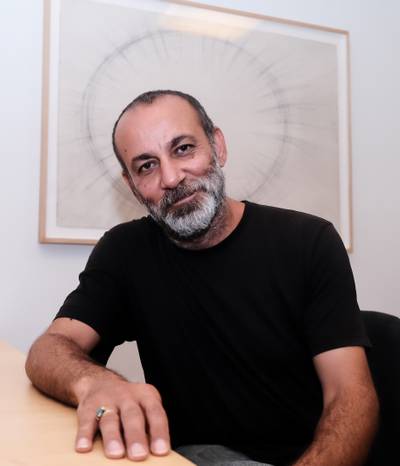

Hiwa is interested in research, participatory working, and collective action, but he is also interested in making it, for lack of a better word, fun. Previously written texts and press articles on Hiwa have called him an “extellectual”, someone who gains knowledge from ‘the streets’, through conversations and the exchange of books. Despite the risk of repeating pre-published information, I find it critically important for the sake of reading the following interview to point out that the qualities of humour and satire—to neither take oneself too seriously nor wallow in the miseries of the world—occupy a central position in Hiwa’s work.
READOn Recognising the Moment of Hope: Speaking in Echoes With Hiwa K.
Ali Akbar Mehta interviews Hiwa K. on navigating the capitalistic system of art, ‘urgency’ of climate change and notions of homeland.
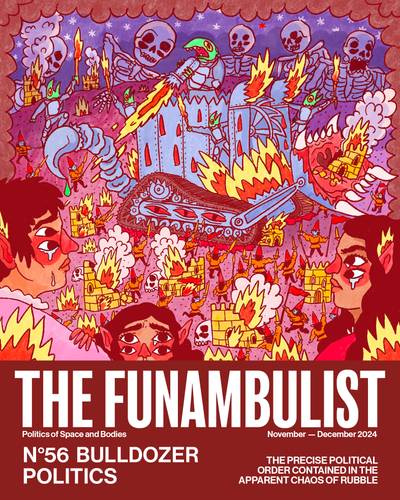

Bulldozers, often seen as neutral tools of industrial demolition, are instruments of territorial domination, urban redevelopment, and political suppression. Yet within these acts of destruction, counter-narratives emerge—poetry, mourning, and collective remembrance—that reclaim agency in the face of state-sanctioned ruination. If ruination is a strategy of power, it is also a site of resistance.
READOn Bulldozer Politics: An Interview with Léopold Lambert & Shivangi Mariam Raj
Ruins are not just remnants of the past—they are strategic, political, and weaponised with intent. In this conversation on ‘Bulldozer Politics,’ Léopold Lambert & Shivangi Mariam Raj of the Funambulist explore how demolition and displacement serve state power while also becoming spaces of resistance and remembrance.
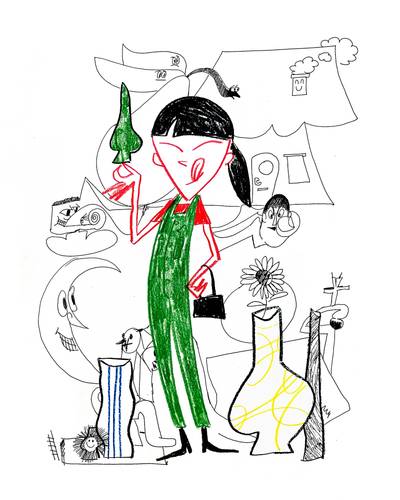

Craftsmanship that leaves a polished finishing and evocative historical notions hidden underneath the fine details. Man Yau’s work with ceramic installations arrests the viewer, while encouraging to revisit and contemplate the uncanny contemporaneity that the artworks embody. In this interview, we discuss artistic processes, practices and labour as well as the intertwining of the personal and the thematic in Yau’s two exhibitions from the spring 2021: M.Y. Chinoiserie at Kuvan Kevät, Exhibition Laboratory, and Dried flowers last forever at Boy Konsthall.
READOn “The Feeling of Being on Display and Under Pressure” — a Conversation With Man Yau
On artistic processes, practices and labour as well as the intertwining of the personal and the thematic in Man Yau’s work.


Dr. Aiswarya Rao on navigating hostile spaces for people-particularly women- with disabilities through the organization ‘Better World Shelter for Women with Disabilities’, building safe spaces, changing policies, and tying art into livelihood, fun, and friendship.
READBlending Art, Friendship & Advocacy: A Conversation With Dr. Aiswarya Rao
Dr. Aiswarya Rao on navigating hostile spaces for people-particularly women- with disabilities through the organization ‘Better World Shelter for Women with Disabilities’, building safe spaces, changing policies, and tying art into livelihood, fun, and friendship.


Can we turn folklore into a source of learning - a knowledge source that informs us about social struggles that otherwise go unnoticed by the powerful?
READ“For All Wars to Come”: An Interview with Noor Abed
Can we turn folklore into a source of learning - a knowledge source that informs us about social struggles that otherwise go unnoticed by the powerful?
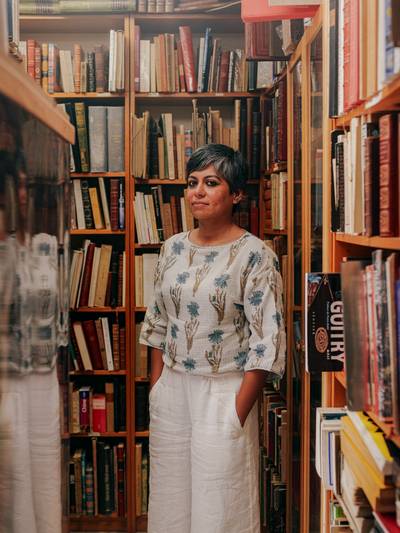

Challenging the notion of the singularity of meaning and traversing the zones of fidelity and accuracy of an image, Tanvi Mishra switched to image-making after pursuing an economics degree, realising that the issues that interested her in the social sciences, like policy-making and social justice, were more imaginatively possible through image-making. Our conversation follows her keynote titled Translational / Transnational : world-building beyond bordered identities for the Out of the Metropolis seminar Artists and Curators Working Together: How and With Whom? organised at The Finnish Museum of Photography in mid-February.
READDisrupting Rhetoric, Defining Tenor: An Interview with Tanvi Mishra
NO NIIN’s co-editor Vidha Saumya interviews curator, photo editor, writer and occasional educator Tanvi Mishra about the role of images, how photography speaks beyond temporal and spatial locations, and how a practice’s genealogy can be framed.
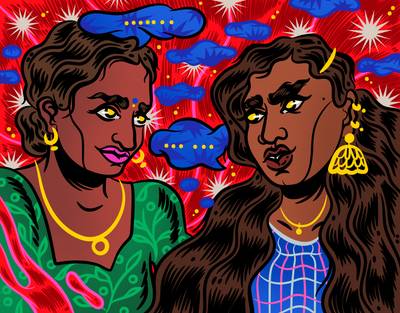

Abinaya and Vanessa reflect on their experiences in the Tamil community and discuss the pressure to represent Tamilness for non-Tamil audiences. Abinaya discusses her work with Tamil Guardian, which sought to combat Sri Lankan government propaganda and elevate the voice of the Eelam Tamil polity. Vanessa discusses her role in editing Tamil Futures, a creative arts magazine aimed at the global Tamil community, which prioritized creative archiving and documenting underrepresented histories.
READWriting Tamilness: Perspectives From Tamil Futures and Tamil Guardian
Abinaya and Vanessa reflect on their experiences in the Tamil community and discuss the pressure to represent Tamilness for non-Tamil audiences. Abinaya discusses her work with Tamil Guardian, which sought to combat Sri Lankan government propaganda and elevate the voice of the Eelam Tamil polity. Vanessa discusses her role in editing Tamil Futures, a creative arts magazine aimed at the global Tamil community that prioritizes creative archiving and documenting underrepresented histories.
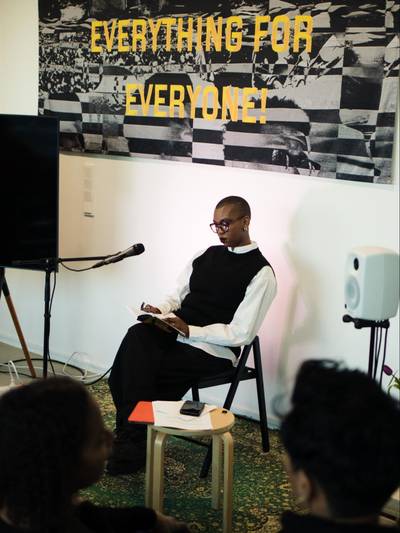

I think of how many people are not able to be involved in social movements because of their own disability or their caring responsibilities, or the way that forms of social violence take away their capacity, or their ability to fight that social violence, because they’re simply trying to stay alive.
READDreaming of Liberation: An Interview with Lola Olufemi
AK Wane and Lola Olufemi discuss what we can learn from archives of revolutionary movements and which lessons to bring into modern activist practices.
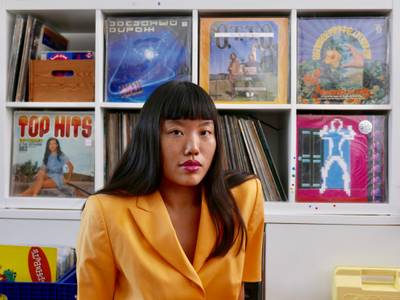

I felt we were living in a crisis within a crisis. I’m not very optimistic about the current systems that we’re living in and how much progress we are making in terms of getting out of this system. Still, the way that I deal with my disappointment and my despair is that I turn to music, underground art, and artist-activist communities.
READDancefloor is a Radicalising Kind of Moment: A Conversation with Ani Phoebe
A conversation with DJ, activist, and founder of Bad Times Disco Ani Phoebe, exploring solidarity work in music spaces during times of austerity and the potential of a political dance floor.